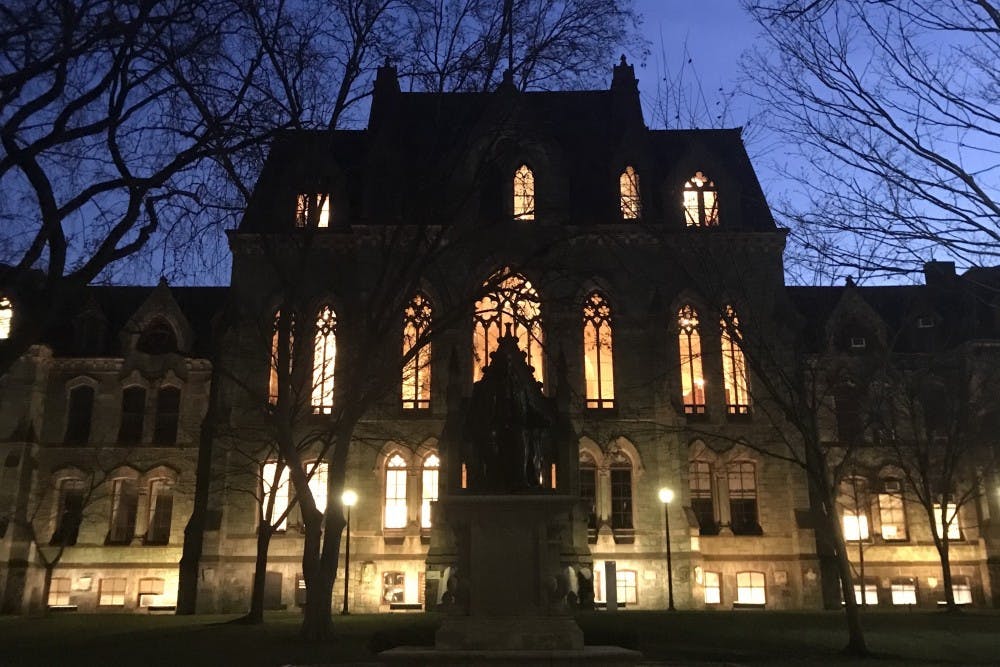
Under the Republican tax bill formally passed by Congress this week, Penn will pay a landmark 1.4 percent excise tax on its endowment, placing the University among a group of nearly 30 colleges who qualify. The tax overhaul cleared the House of Representatives on Wednesday by a 224-201 vote after close to two months of debate in both chambers of Congress.
For administrators at Penn and at private universities across the country, the most crucial line item to appear in the final bill is the excise tax on school endowments.
The House’s bill, which passed on Nov. 16, applied the tax to any school whose endowment value per student exceeds $250,000. The Senate’s version — and the version that cleared a conference committee comprised of members from both legislative chambers — doubled that requisite value to $500,000.

Penn just narrowly fell within that limit this year. The University’s endowment value per student was nearly $445,000 in 2015, but after a record return in the 2017 fiscal year catapulted Penn’s total assets to $12.2 billion, the per-student value is closer to $570,000 if one were to use 2016 enrollment figures.
“At this point, no one really knows the details on how the excise tax on endowment income is going to work,” University spokesperson Stephen MacCarthy wrote in an emailed statement. “Like other institutions of higher education, we will now turn our attention to how the federal government intends to implement the excise tax.”
Once President Donald Trump signs it, the $1.5 trillion tax bill will become law and with it, a range of systematic changes to the United States tax code. The corporate tax rate will decrease by 14.6 percentage points and Americans will no longer be assessed a penalty for not purchasing health insurance, all but crippling the signature feature of the Affordable Care Act. Republicans have trumpeted the bill as a boost to the American economy and a way to restore corporate competitiveness with foreign countries, while Democrats have bemoaned the bill’s speedy path through Congress and assailed its main provisions as a boon to the wealthy.
Absent from the final bill — to the relief of graduate students at Penn — is a tax on graduate student waivers, which experts have predicted could hike student fees by close to 300 percent. That provision was left out of the Senate’s bill and the final version after being initially present in the House’s bill.
Many Ph.D.-seeking graduate students receive a teaching or research assistant stipend valued at close to $30,000, which is already subject to taxation. The Senate tax plan would have included a tax on students’ tuition scholarships — currently given tax-free — which can amount to nearly $50,000.
Penn graduate students have protested that provision for several weeks, including at a town hall on Dec. 8 and a “work-in” on Nov. 29 in front of College Hall.
Over the past few weeks, Penn President Amy Gutmann has made no secret of her opposition to the tax.
“We believe strongly that many of these changes would have a detrimental impact on our students, on Penn families, on our institution, and on the mission of higher education,” she wrote in a Nov. 9 email co-signed with Provost Wendell Pritchett and Executive Vice President Craig Carnaroli.
Along with other private universities, Penn’s lobbying arm has been actively working in Washington, D.C. to voice its disapproval of the legislation. Penn spends over $1 million annually on lobbying, by far the most among its Ivy League peers.
The Daily Pennsylvanian is an independent, student-run newspaper. Please consider making a donation to support the coverage that shapes the University. Your generosity ensures a future of strong journalism at Penn.
Donate






